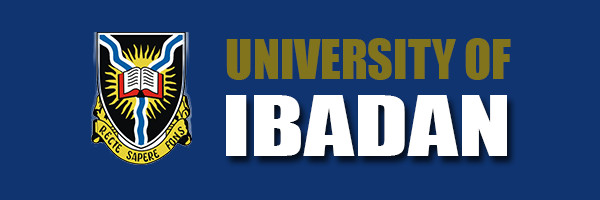publication
1. Ohia, I.N. (1993) English Studies Teaching: Concept, Problems and Prospects.
Review of English and Literary Studies (RELS) Vol.10. No. 2, 18-28.
2. Ohia, I.N.(1997) The Lexicon of Standard Nigerian English as an Acceptability
Paradigm among the Educated Elite.IFRA News Letter,Ibadan. Vol. 6,No 1,9-11.
3. Ohia, I.N. and Ogunbiyi, M.O. (1999). Curriculum Recycle theory: a New Paradigm
for making the Reading-Writing Connection. African Journal of Educational
Research Vol. 5 No.1, 134-140.
4. Ohia, I.N. and Ameh, E. A.(1999) Languages in Curriculum: A Case
For Total Vernacular Media of Instruction Policy for Nigerian Schools.
In J.O. Obemeata, S. O. Ayodele and M.A. Araromi (eds.)Evaluation in
Africa. Ibadan: Stirling-Horden Publishers. Pages 260-267.
5. Ohia, I.N. (2001) Critical Reading Comprehension Skill: The Pedagogical Goal of
Literary Studies Programme For Functional Literacy. In A. Mansaray and I.
Osokoya(eds.). Curriculum Development at the Turn of the Century. The Nigerian
Experience. Ibadan, Department of Teacher Education. Pages 41-50.
6. Lawal, A., Isiugo-Abanihe,I. M and Ohia,I.N.(2002a) (eds). Perspectives on Applied
Linguistics in Language and Literature. Ibadan: Stirling-Horden Publishers.
7. Ohia, I.N. and Adeosun, N. (2002b). ESL Course books and Self-Instruction: A
Pedagogical Evaluation. In A. Lawal, I.M. Isiugo-Abanihe, and I.N. Ohia, (eds).
Perspectives on Applied Linguistics in Language and Literature. Ibadan: Stirling-
Horden Publishers. Pages 220- 228.
8. Makinde, S .O. and Ohia, I.N. (2002) Ethnic Identity and Attitude Towards a
Lingua Franca for Nigeria. Educational Perspectives Vol. 5 No.1, 109-118.
9. Ohia, I. N. and Igboanusi ,H. (2001) Language Conflict Among Linguistic Minorities in
Nigeria. A Technical Report submitted to IFRA , Institute of African Studies, University of
Ibadan, Ibadan.
10. Igboanusi, H. and Ohia, I.N. (2003) Language Conflict in Nigeria: The Perspective of
Linguistic Minorities. African Journal of Educational Research. Vol.9,Nos.1 & 2 , 24 – 35.
11. Onukaogu C.E. and Ohia, I.N. (2003). Literature in the Reading Curriculum. In C.E.
Onukaogu.A.E.Arua and O.B. Jegede (eds.) Teaching Reading in Nigeria: A Guidebook
to Theory and Practice.Newark,DE.:International Reading Association . 57-77.
Assocition.57-77.
12. Ohia, I.N. (2008) Towards Standard Nigerian English: The Acceptability of Some
Popular Nigerian English Expressions. In M.M. Bagwashi, M.M. Alimi, and
P.J. Ebewo (eds.). English Language and Literature Cross Cultural Current.
London: Cambridge Scholars Publishers 224 – 232.
13. Ohia, I.N. and Onwuka, C. (2008). Enhancing Literacy Empowerment Through the
Mother Tongue Medium of Instruction for National Development: Issues, Problems
and Prospects. In Obiajulu, E. Uwatt, L. and Arua, E.A. (eds.). Topical Issues in
Literacy, Language and Development in Nigeria. Newark: International
Development For Africa. International Reading Association. 53 – 62.
14. Ohia, I.N. (2009) Achieving Permanent Literacy at the Basic Education Level in
Nigeria: A Balanced Literacy Approach. West African Journal of Education.
Vol. XXIX, 58-70.
15. Ohia, I.N.(2009) Influence of Prior Knowledge of Text on Reading Miscue Among
Junior Secondary School Students. Literacy and Reading in Nigeria.Vol.12
No.1,147-157.
16. Ohia, I.N. (2010) Identifying and Investigating Key Problem Areas: Cognitive Style,
Verbal Ability as Factors in ESL Adolescents Expository Text Reading Comprehension.
Ghana Journal of Education and Teaching No.10,135-147.
17. Ohia, I. N. (2010) Language Attitudes and Minority Status: A Case of the
Rivers State of Nigeria. Imo-Irikisi Vol.2,No 2 ,113- 122.
18. Ohia, I. N. and Adeyinka, A.A.(2007) Code-Alternation of Yoruba-English
Bilinguals and their Acceptability. Ibadan Journal of European Studies. No. 8.
2008. (In Print)
19. Ohia, I. N. (2010).The Crises of Youths and Adolescents in the Niger Delta Region of
Nigeria: Implications for their Education. Context: Journal of Social and Cultural
Studies. Vol. 14, No.1.
20. Ohia I. N. (2011) . Integrating ICT into English As A Second Language Pedagogy in
Nigeria: A Paradigm. Ibadan Journal of Education Vol.13.( In Print)
21. Dada, E. M. and Ohia, I . N.(2014) Teacher - Made Language Test Planning, Construction,
Administration And Scoring In Secondary Schools in Ekiti State. In Journal of Education and
Practice . Vol.5 No. 8., 71-75.
22. Chike-Okoli, F. C. and Ohia, I.N. ( 2015 ). West African Journal of Education Vol.
XXXV.,70-80.
23. Ohia, I.N. and Ochuba, O. O.( 2015 ) Effects of Collaborative and Meta-Cognitive Learning
Strategies on English Language Students' Achievement in Reading Comprehension. Journal
of Education and Policy Review. Vol. 7, No 1.,49-69.
24. Ohia , I. N. and Igubor P. ( 2016 ) Language Endangerment: The Case of Igbanke and its
Implication for the Teaching and Learning of Indigenous Languages in Nigeria. In J. Gbenga
Adewale (ed.) Issues in Teacher Education in Africa. Cameroon: Educational Assessment &
Research Network in Africa. ,1-20.
25. Fakeye , D. O. and Ohia, I. N.( 2016a) .Writing Anxiety : An Effective Filter for Essay
Writing Instruction among ESL Students in Ibadan. International Journal of Arts and
Humanites.Vol.5,No. 3.,78-89.
26. Ohia, I.N. and Chike- Okoli , F.C.( 2016). Integrating ICT into English Language Learning :
The Perception of ESL Students in Ibadan Metropolis. Grammar, Applied Linguistics and
Society : A Festschrift for Wale Osisanwo.( In Print).
27. Fakeye , D. O. and Ohia I.N.( 2016b) .Teacher Effectiveness Variables as Predictors of
Students' Achievement in Poetic Literature in Ibadan. Geste Voix No . 23, Depot Legal No
2677 du 26 Juin 2016
